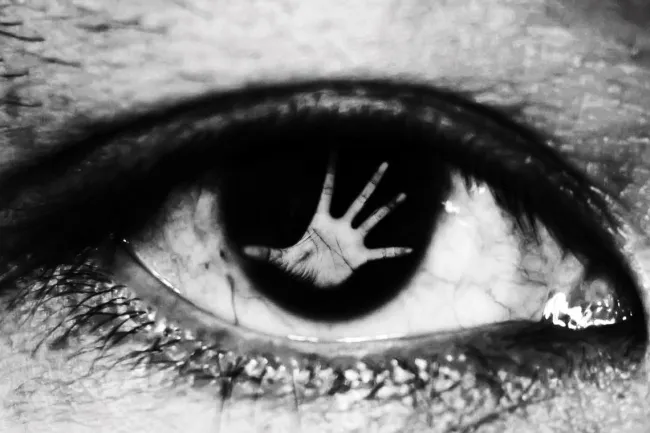Is slavery alive in your hometown? Even though the United States formally abolished slavery in 1865 with the Thirteenth Amendment, modern forms of slavery persist today. Among the worst forms of modern day slavery is sex trafficking, a heinous crime that disproportionately affects women and children. It may even be happening in your city.
Hotels, casinos, resorts, nightclubs, and other establishments play an important role in sex trafficking, because sexual exploitation of trafficking victims often takes place under their roofs. Hotels are particularly useful for sex traffickers because staff members are often poorly equipped to recognize trafficking and rarely report it.
Training hotel staff to spot signs of sex trafficking could go a long way towards ending it, but hotels and motels have a financial incentive to look the other way and may not be in a rush to offer the necessary training.
At Morgan & Morgan, we find this unacceptable. No one should look the other way when it comes to sex trafficking and we want to hold those who enable it accountable for their inaction. If you are a victim of sex trafficking, we may be able to help. Contact us today at 800-300-2100 for a confidential, free discussion. You may be entitled to compensation.
How Common Is Sex Trafficking in America?
It’s difficult to place a precise figure on the number of sex trafficking victims in the U.S., but Polaris — a nonprofit organization fighting to end modern slavery — estimates the number of victims nationally reaches into the hundreds of thousands when estimates of both adults and minors, and sex trafficking and labor trafficking are combined.
What is known for sure is that since 2007 the National Human Trafficking Hotline — a service run by Polaris — has received reports of 34,700 sex trafficking cases inside the U.S., with more than 5,500 reports coming in 2016. Of the more than 5,500 reports of sex trafficking that year, nearly 70 percent of victims were women, and 27 percent involved a minor.
The total number of sex trafficking nationally is likely much larger.
Who Are the Victims of Sex Trafficking?
Women and children make up the majority of sex trafficking victims, and nearly a quarter of all reports to the NHTH in 2016 involved a U.S. citizen. These women and children are often coerced or tricked into performing commercial sex acts by someone they know, such as a parent or family member, or someone they became romantically involved with, according to Polaris.
Runaway children are particularly vulnerable to becoming sex slaves. In fact, in 2017, the National Center for Missing and Exploited Children estimated that 1 in 7 runaways in the U.S. reported to them were likely sex trafficking victims.
Foreign nationals are also brought into the country for the purpose of sex trafficking. Nearly nine percent (666 reports) of sex trafficking reports made to the NHTH in 2016 involved a foreign national, but that is likely much lower than the actual number. A report cited by Ark of Hope for Children, another nonprofit involved in the fight to end human trafficking, estimated that 14,500 - 17,500 people are trafficked into the U.S. each year.
Victims of sex trafficking may remain in that situation for anywhere from a few days to a few years, but survivors are almost always left with lasting impacts. Victims are known to develop physical and relationship problems, psychological issues stemming from the trauma they experienced, and chronic health outcomes related to drug use, physical abuse, and untreated or improperly treated medical conditions, according the U.S. Center for Disease Control.
How Are Businesses Profiting from Sex Trafficking?
Casinos, resorts, nightclubs, and other businesses are useful for sex traffickers to find and exploit victims, but hotels and motels are the ideal venues because of their easy access for buyers, ability to pay in cash, and lack of upkeep expenses, according to the NHTH. It’s very simple for a trafficker to advertise victims online and arrange for meetups at hotels.
As a result, hotels are the first line of defense against sex trafficking, and it’s important for hotels and motels to train their staff on how to spot it. For instance, if a woman doesn’t have control over her possessions or ID, she may be a victim of trafficking. Alternatively, if a single person reserves multiple rooms or rents rooms hourly and for less than a day, they may be a sex trafficker, according to the U.S. Department of Homeland Security.
The best way hotels and motels can help in the fight to stop sex trafficking is to train their employees to spot its telltale signs. Many hotels, such as Marriott International, do train their employees to spot sex trafficking, but many others continue to look the other way and seemingly profit off of modern day slavery.
Help Us End Sex Trafficking In America
At Morgan & Morgan, our attorneys have partnered with the law firm Weitz & Luxenberg to end sex trafficking in the United States. Our lawyers believe that hotels and motels play a significant role in perpetuating sex trafficking and we want to hold them accountable for turning a blind eye to the egregious crimes happening on their property.
If you were the victim of sex trafficking, contact us today at 800-300-2100 for a confidential, free discussion. You may be entitled to compensation.
